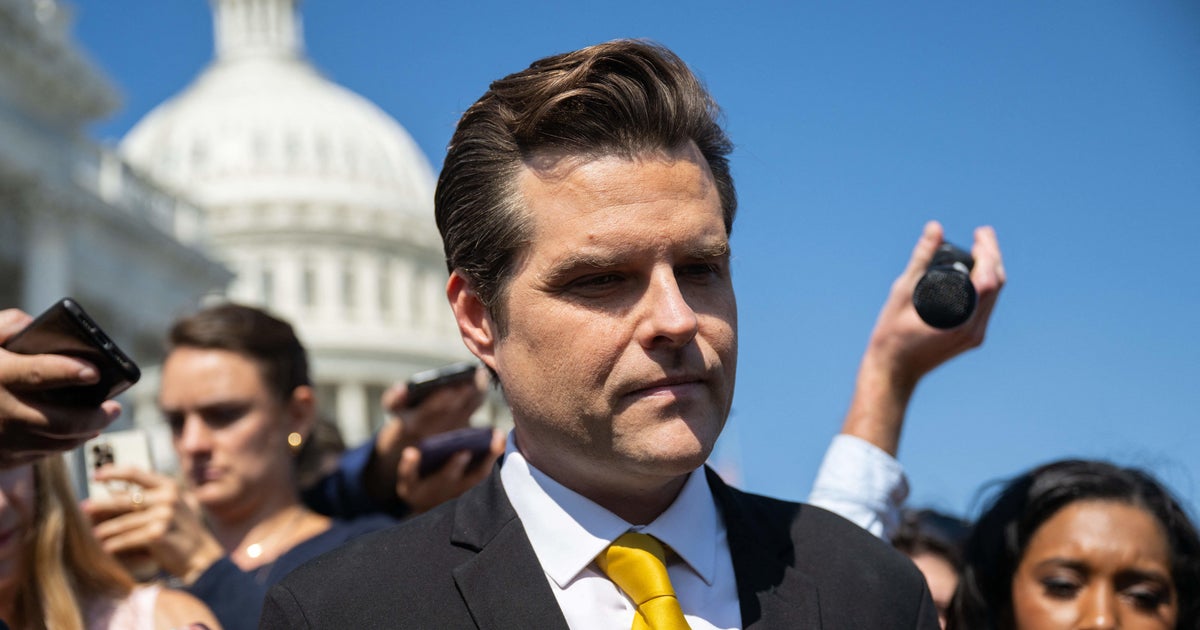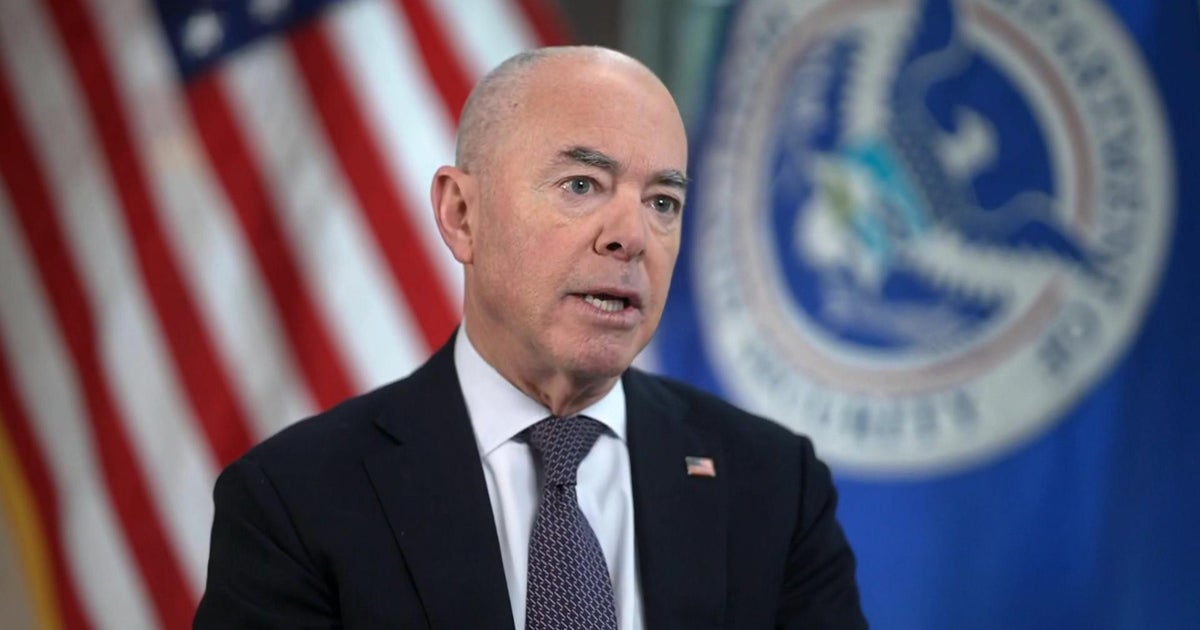Millennial women talk candidly about Trump, immigration and guns
"CBS This Morning" teamed up with digital media company Refinery29 this week for M(Y) Vote, a series that explores millennial women's impact on the upcoming midterm elections. CBS News' Alex Wagner spoke with a group of millennial women voters from Pennsylvania at Frankford Hall in Philadelphia. Their conversation touched on a wide range of topics including the repercussions of supporting President Donald Trump, immigration and gun rights.
The panel included three Republicans and three Democrats between the ages of 26 and 24. The three Republicans on the panel were Trump supporter Brittany Christiansen, Jessica Barnett, who did not vote for President Trump and identifies more as an independent, and Colette Forster, who voted for the first time in 2016 because she wanted to see Mr. Trump elected.
The three Democrats on the panel were Lauren Hughes, who voted for Hillary Clinton, Jami Amo, a lifelong independent who registered as a Democrat in 2016 and voted for Clinton, and Melissa Alam, who first supported Bernie Sanders but voted for Clinton in the general election. They all say they plan to vote in November's midterms.
Below are excerpts from their conversation.
Gun control
ALEX WAGNER: Let's talk about guns. Who here owns a gun? (Lauren Hughes raises her hand). What do you think about efforts to promote gun safety reform?
LAUREN HUGHES: I'm an attorney and I practice in mental health law as well, and I do believe there needs to be some safeguards in place for gun ownership. ... I think you need to dig a little bit deeper, whether it's into someone's mental health history. I just think there needs to be a process involved that delves into people's backgrounds a little further than just what's on the surface of a conviction.
WAGNER: Colette, I saw you nodding your head...
COLETTE FORSTER: Yeah, I agree with her. I think that there should be maybe a mental health check, something like that. I believe that people should be able to protect themselves, their families and their homes. ... But you don't need a semiautomatic weapon to protect yourself. Maybe those should be banned.
BRITTANY CHRISTIANSEN: I mean, the Second Amendment was put in place because of protecting the citizens from a tyrannical government. … So if the government has these guns, we should have the guns.
JAMI AMO: I mean, guys, this is my issue. …You want the machine guns? Go for it, but please lock them up and please keep the ammunition separate. This goes back many times in my life. I was 15 years old. I was a ninth grader at Columbine High School and I can tell you that it doesn't matter what color the criminal is, and what kind of weapon we're worried about when that gun is five feet away from you and people that you know are being killed. You kind of stop and you think, well, hey, maybe we've gone a little too far with this. Maybe there is something we can do. ... But to say that we can't do anything to address anything about the guns is – it's giving up. It's not gonna help anybody it's not gonna protect anyone, really.
HUGHES: For me, it's all about: can I relate to that person? You know, gun violence to me is, you know, what I see on TV. But sitting next to someone that has been a victim, I can look at it in another, you know, another way. As a gun-toting person it's not okay when someone like her, you know, another human being, has been through a situation like that.
WAGNER: It sounds like everybody wants us to see each other's humanity in all of this, right?
AMO: I think that's what's going to bring us back together as a country.
The political divide
WAGNER: Do you think millennials are as polarized as the rest of the country?
MELISSA ALAM: Yeah, I think we definitely are. I think when I personally find out someone voted for Trump, I just change my opinion of them right away. … I actually don't have any Republican friends that I know of, so.
FORSTER: There's a lot of people that won't speak up because when they're online or they, you know, post their opinion on social media, they are immediately attacked. They're called a bigot, a racist, a xenophobe. All of those things. And those are the worst things you can be called, especially when you are not one.
CHRISTIANSEN: So for me, I became a Republican when I was 12 years old. … But it wasn't until Trump that I've had friends not be friends with me anymore. …. I've had numerous, numerous people come to me privately and they told me that they supported Trump, but if I outed them in public they would flat out deny it. That they're literally afraid to speak their minds and they can't believe that I speak my mind.
Immigration, the wall and family separation
WAGNER: Immigration is very much in the news. … Who here is in favor of a wall?
CHRISTIANSEN: Walls work. You might not like the wall, but walls work.
WAGNER: It will cost money.
CHRISTIANSEN: It'll save money by not having the illegals and drugs pouring over the border and having to deal with the repercussions here.
BARNETT: We do want immigrants. We want people coming to our nation.
FORSTER: Legal immigration I completely support.
CHRISTIANSEN: And then when you look at the lottery system, I mean, why are we giving away U.S. citizenship over a lottery? We should be doing it merit-based and picking the best and the brightest.
FORSTER: Right, you want the best and the brightest to come in. You don't want the leftovers.
WAGNER: Let me get your thoughts on some of this. … I know that, Melissa, your parents are immigrants.
ALAM: I never saw it as a big deal. I thought that this was a country where people would come to, you know, have a better life. …My parents came from Bangladesh in the '80s, and I feel like we deserve to be here. I thought this was the land of opportunity. So to build a wall against other human beings is just not right to me.
WAGNER: What do you think should be done, though? There are calls on the Democratic side to abolish ICE.
ALAM: I think we've seen enough from these camps that they're having, the separation of families. I just, I'm so appalled at what's happening.
FORSTER: I'm a mother. I don't believe that the children should be separated from their parents. But what they're doing is, you know, they would come in here with their child and that way we'd catch and release, and now we can actually hold them.
WAGNER: What did you think of the family separations policy?
BARNETT: I'm not very supportive of it because I don't think it actually achieves the goal of promoting legal immigration. I just think it's punitive. It distracts from the actual calls for true reform.




